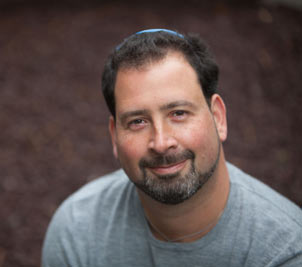Questions & Answers
There are no hard and fast rules about how rabbis perform weddings. Within each community, there are variations as to what the rabbi feels is appropriate and feels comfortable with regarding weddings.
In order to be respectful of everyone’s time, I will address a few commonly asked questions & answers about my wedding philosophy that may help you when considering me as a rabbi for your wedding:
Why have a Jewish wedding?
By taking this step together, you and your fiancée are making a statement about your values, your commitment to one another, and your belief in ideals bigger than just the two of you. The Jewish wedding rituals are truly beautiful, full of symbolism and tradition. They have been designed over many generations to help enhance your connection to one another, your families, and your people. The Jewish wedding rituals help create a powerful container for the deep feelings of joy, allowing us to express the height of human emotion. They permit us to feel closer to the mysteries of the universe and God, even if for a few moments. A Jewish wedding provides a sense of continuity and the sacred space to make your ceremony deeply meaningful and memorable.
Can we be ‘creative’ when designing our wedding ceremony?
Yes! Within the framework of the typical Reform wedding ceremony, I am open to the creation of personal ritual that would allow for a reflection of who you are and those things that are important to you. Often this takes the form of writing your own vows from the heart, personal prayer or inclusion of favorite poems or songs into your ceremony. We could also talk about creating special rituals that would help you feel spiritually prepared for your wedding day.
Is there rabbinic counseling leading up to the wedding day?
Yes! Typically, I meet with wedding couples 3-4 times before the actual wedding ceremony. This enables us to know each other well and feel comfortable with one another. During our time together, we could tap into some of Judaism’s valuable insights into marriage and your journey together as a couple.
What is your stance on Intermarriage?
After a lot of soul searching and many meaningful conversations with couples of different faith backgrounds, I have come to the conclusion that performing intermarriage ceremonies is an important part of being a truly welcoming community. My ultimate hope is that the couple is committed to creating a Jewish home and will become an integral part of a Jewish community. To that end, I request that interfaith couples participate in formal Jewish study together prior to the wedding. The couples I counsel engage in open dialogue about the possibilities of conversion and the value of raising children in Judaism. After years of working with couples, I appreciate that each human story is nuanced and always begin the pre-marriage process with open conversation.
What is your stance on Egalitarian weddings?
I insist that the ceremony be egalitarian. My personal philosophy is in line with Reform Judaism’s belief that both genders are spiritually equal. Some practical examples include the signing of the Ketubah by both wedding partners (not just the groom), and the exchange of rings (not just the bride receiving a ring from the groom).
Would you co-officiate with another clergy member?
I love working with cantors and I am open to the possibility of co-officiating with another rabbi, if that is your preference. To be authentically present during your ceremony, I cannot perform the ceremony with clergy of another faith.
Would you officiate a same-sex wedding ceremony?
Yes! Absolutely.
What time can the ceremony begin?
With the exception of Shabbat (sundown Friday to Saturday), my time is flexible any day of the week. This means that Friday night is not an option at all. Saturday, I am open to beginning the wedding procession at 6pm, regardless of the time of the year.
On the day of our wedding, how long can we expect you to be with us?
On the day of your wedding, I will be available to you to officiate at the Ketubah signing and wedding ceremony for a total of one and a half hours. In my experience, this allows for a comfortable pace and time frame. In order to be respectful of everyone’s time, it is important that we establish the ‘real’ start-time that your ceremony will begin (which may be different from when you ask your guests to arrive).


